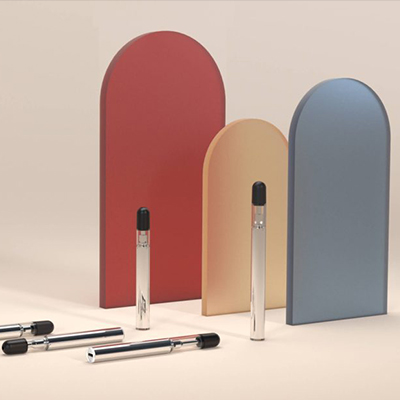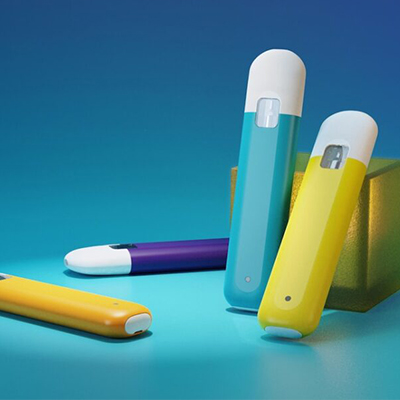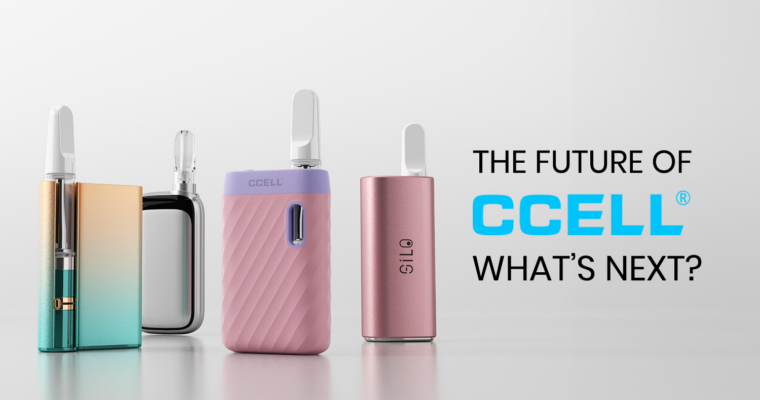Hexahydrocannabinol acetate (HHC-O) is a novel cannabinoid that produces effects similar to – but potentially more potent than – Delta-9 THC. Although HHC-O has a molecular structure largely like that of Delta-9, you’ll experience the effects in a somewhat different way due to the fact that HHC-O is the acetate form of HHC and the fact that all forms of HHC are hydrogenated. We’ll explain those things in greater detail in a moment – but for now, there are three things that you need to know about how HHC-O vs. Delta-9 compare.
- HHC-O may be more potent than Delta-9, with user reports suggesting that it has about 1.5 times the potency.
- HHC-O is a prodrug, which means that the effects will only appear after your body has metabolized it.
- The fact that HHC-O is hydrogenated may make it more stable, allowing it to retain more of its potency in storage.
With that introduction out of the way, it’s time to learn more about what HHC-O is and find out why you might want to make some HHC-O vape cartridges a part of your next cannabinoid purchase. Let’s dive in.
What Kind of Cannabinoid is HHC-O?
To help you understand what HHC-O is, we’ll begin with a summary of the two ways in which it differs from Delta-9 THC.
HHC-O Is an Acetate
HHC-O is an acetate. That’s what makes it a prodrug, meaning that it is a precursor to THC. That’s what the “-O” at the end of “HHC-O” signifies. Because HHC-O doesn’t begin to produce its effects until your body has metabolized it, you’ll find that the effects of HHC-O will take noticeably longer to become evident compared to THC. That’s true even you’re using a HHC-O vape cartridge and a 510 battery. You’re probably used to feeling the effects of a cannabinoid almost instantly when you vape it. If you vape HHC-O, though, you’ll still have to wait a while before you’ll feel it.
HHC-O Is Hydrogenated
HHC-O is hydrogenated. That means the cannabinoid is processed in a way that adds hydrogen atoms to the molecules. Much the same as with hydrogenated cooking oils, hydrogenation makes the molecule more stable and resistant to oxidation. In cooking coils, oxidation causes rancidity. In cannabinoids, it means a loss in potency – something that you definitely don’t want if you’re going to be storing the product for a while.
HHC-O Is Semi-Synthetic
HHC-O does occur naturally in cannabis, but it occurs in such low concentrations that hemp processors don’t bother to extract it from whole flowers. Instead, they synthesize it from another cannabinoid – CBD – in a laboratory setting. Although HHC-O begins as a direct extract from cannabis flowers, it wouldn’t become HHC-O without a little chemical assistance. That’s what makes it a semi-synthetic cannabinoid.
How Is HHC-O Made?
Because HHC-O starts out as CBD, the first step in making it is creating a hemp distillate and refining it until only the CBD remains. From there, the conversion process begins. Here’s an overview of how it works.
- High-CBD industrial hemp is grown, and the flowers are harvested and sent to a hemp processing center. The hemp processor grinds the flowers down to a fine powder and extracts their essential oils using pressurized carbon dioxide. The resulting product is raw hemp distillate.
- The hemp distillate is filtered to remove unwanted particulate matter. It’s then put through a fractional distillation process that helps to separate the CBD from the other cannabinoids.
- The refined distillate is combined with a solvent that causes the CBD to crystalize. The CBD crystals – over 99-percent pure – are removed.
- The CBD is converted to THC in a process called isomerization. In this process, the CBD crystals are dissolved and combined with an acid that changes their molecular structure.
- The THC is converted to THC-O by combining it with acetic anhydride.
- The THC-O is converted to HHC-O via hydrogenation. In this process, the THC-O is mixed with hydrogen and a catalyst that causes the hydrogen atoms to jump to the THC-O molecules. The catalyst is usually a metal such as nickel.
As you can see, the process of making HHC-O from CBD is a fairly lengthy one. That’s one reason why HHC-O is somewhat expensive compared to some other cannabinoids like Delta-8 THC. The process also involves hydrogen and acetic anhydride – two substances that are extremely flammable. You should never attempt to make HHC-O or any other novel cannabinoid on your own and should always leave this job to the experts. The only safe way to make HHC-O is in a carefully controlled laboratory setting.
What Are the Effects of HHC-O?
The effects of HHC-O are comparable to those of Delta-9 THC, although many people subjectively report that HHC feels about 1.5 times stronger. It’s possible that HHC-O simply feels stronger than THC because of the delayed onset of the effects. It’s also possible that the effects feel stronger because HHC-O lasts longer than THC in storage before it begins to degrade. That’s a good thing for you as a consumer because you have no idea how long a cannabinoid product has been in storage before reaching your hands. It’s also good because you might want to store it for a while yourself.
The most commonly reported effects of HHC-O include:
- Anxiety reduction
- Pain relief
- Mental euphoria
- Feeling uplifted and sociable
- Feeling relaxed and at peace
What Are the Side Effects of HHC-O?
HHC-O is a potent cannabinoid, and that statement is especially true of vape cartridges because the process of converting CBD to HHC-O results in a distillate that’s typically around 85 percent pure. In other words, HHC-O isn’t just potent compared to other cannabinoids – it’s also drastically more potent than cannabis flowers. In general, the side effects that people report when using HHC-O are similar to the side effects of THC overconsumption. They include:
- Dry mouth
- Red and dry eyes
- Agitation and anxiety
- Overwhelming physical and mental sensations
When you try HHC-O for the first time, it’s important to remember that it has a delayed effect since it is a prodrug. Start slowly until you become familiar with its effects. You won’t feel the effects right away, so you should avoid the temptation to overconsume.
HHC-O FAQs
Do you have a question about HHC-O that we haven’t answered yet in this article? Chances are that you’ll find the answer here. These are the questions that people most commonly ask about HHC-O.
What Is HHC-O?
HHC-O is the hydrogenated acetate form of THC. Compared to THC, it is more stable in storage. The effects have a slightly delayed onset, and you may find HHC-O more potent than THC.
Does HHC-O Get You High?
Yes, HHC-O will get you high. The effects are comparable to those of THC, and some people claim that HHC-O has about 1.5 times the potency of THC. In addition, the fact that it is hydrogenated means that HHC-O may potentially retain its potency longer in storage.
How Long Does the HHC-O High Last?
The peak of an HHC-O high may last anywhere from about two to eight hours depending on your body’s rate of metabolism and what form of HHC-O you’re using. With edibles, the effects take longer to appear but also last longer. Vaping produces quicker effects, but the effects also fade more quickly.
How Do HHC-O vs. HHC-P Compare?
Compared to HHC-O, HHC-P doesn’t have a delayed onset because it isn’t a prodrug. In addition, HHC-P has a longer side chain of carbon atoms that some people believe can make it significantly more potent than HHC-O.
How Do HHC-O vs. THC-O Compare?
HHC-O and THC-O are both acetate forms of THC and are both prodrugs with delayed onsets. However, HHC-O is hydrogenated and may potentially be more resistant to oxidation in storage.
Is HHC-O Safe?
There is a potential health concern involved with inhaling any acetate because an acetate may release ketenes when it’s heated. The inhalation of ketenes could be harmful to the lungs. If you’re concerned about that, you might want to stick to edible HHC-O products.
Is HHC-O Legal?
HHC-O is legal according to federal law as long as it is derived from industrial hemp with a Delta-9 THC content below 0.3 percent. In addition, HHC-O is legal in most states except those with laws specifically banning it or all THC analogs.
Will HHC-O Cause Me to Fail a Drug Test?
When you use HHC-O, the metabolites left behind in your body as the same as those that occur with THC usage. In other words, it is very likely that using HHC-O will cause you to fail a drug test. You should avoid using novel cannabinoids other than CBD if you are subject to drug testing.
Final Thoughts on HHC-O
We hope that you’ve enjoyed reading this article and becoming an expert on HHC-O. As you’ve learned, HHC-O has two very interesting properties compared to Delta-9 THC. The fact that it’s hydrogenated may make it more stable in storage and help prevent the degradation of its cannabinoid content. In addition, many people believe that HHC-O is noticeably more potent than THC. When you combine those benefits with the fact that HHC-O is completely legal to purchase in most states, it’s not surprising that people have flocked to this cannabinoid in such large numbers.
If you’re planning to vape HHC-O, the easiest way to do so is by buying some pre-filled vape cartridges – and you’re going to do that, you need a good vaping device for the best possible experience. Browse our selection of vaporizers and vape cartridge batteries now.






